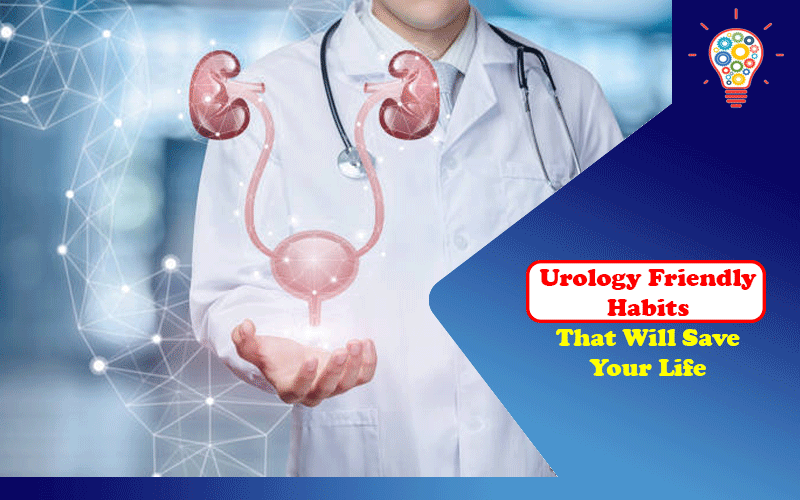When people think about safeguarding their health, the focus is usually on the heart and lungs. However, urologic health, including the urinary system and male reproductive system, is just as critical for overall wellbeing. You don’t need to go on a diet or overhaul your lifestyle, just focus on meaningful changes that will maintain not only your urologic system but your overall level of wellness.
Table of Contents
Eat Lots of This
A consultation with a urologist Sydney can provide you with a plan for a healthy diet of whole foods, including high-quality protein and plentiful fruits and vegetables. A urology-friendly diet incorporates high levels of vitamin B, C, and K, and includes the following:
- Water: dehydration increases your risk of kidney issues. Try to drink 2-3 litres of water daily to flush out your urinary system.
- Fruit: blueberries, cranberries, grapes, and pineapples are beneficial to the urinary system.
- Protein: egg whites, sea bass, and skinless chicken are kidney-friendly and full of nutrients.
- Vegetables: arugula, bell peppers, cabbage, cauliflower, garlic, mushrooms, and radishes are ultra healthy and good for your kidneys.
Don’t Eat That
While loading up on healthy foods is important, it’s also critical to avoid the unhealthy ones. For optimal kidney health and overall wellness, avoid the following:
- Sodium: too much salt increases the risk of kidney stones. Avoid deli meats and processed or fried foods.
- Caffeine: as a natural diuretic, caffeine increases the urge to urinate; it also increases dehydration levels.
- Animal proteins: an excess of eggs, poultry, red meat, and seafood can lead to an increase of uric acid in the urine, which can lead to kidney stones.
- Oxalate-rich foods: foods such as beets, nuts, okra, soy products, spinach, sweet potatoes, and tea can lead to calcium oxalate kidney stones.
- High potassium and phosphorous: these foods can aggravate existing issues with the urinary system.
- Sugar: sugary foods can cause obesity and increase your risk of cancer, heart disease, and stroke.
Develop Healthy Habits
There are a number of healthy habits that can positively affect your urologic health.
- Cardiovascular exercise. If you are currently sedentary, start slow and work up to a more challenging routine that consists of 30 minutes of aerobic activity 3-5 times each week. Find an activity that you enjoy, such as walking, biking, swimming, or dancing, and build a habit you will stick with.
- Strength training: building muscle is also important, using weights or resistance to conduct repetitions a few times a week.
- Pelvic floor exercises: for women, kegel exercises are helpful for supporting the bowels and bladder.
- Healthy bathroom habits: avoid holding in your urine for too long. When you do go, empty your bladder completely to avoid the risk of infection.
Quit Smoking
The chemicals and toxins in cigarettes can lead to a huge number of health issues, including urologic problems. The following conditions have been shown to be caused or exacerbated by smoking:
- Bladder cancer: cigarette chemicals damage the lining of the bladder and encourage the growth of cancer cells, resulting in smokers developing bladder cancer at a rate four to seven times higher than nonsmokers.
- Kidney cancer: inhaled carcinogens enter the bloodstream and cause buildup in the kidneys as they are filtered.
- Prostate cancer: while the cause of prostate cancer is not clear, smoking cessation reduces inflammation in the prostate, which reduces the cancer risk.
- Erectile dysfunction: the circulation problems caused by smoking can worsen erectile dysfunction symptoms and increase their frequency.
- Infertility: Smoking doubles the rate of infertility issues, as the chemicals in cigarettes can damage the genetic material in sperm and eggs.
- Kidney stones: 26 percent of those with kidney stones are also smokers.
- Overactive bladder: smoking irritates the bladder, damaging the lining and supportive urologic organs, which can lead to overactive bladder and incontinence.
Get Checked Out
Good urologic health requires proactive medical visits. Regular prostate exams and screenings will help catch problems early. Regularly scheduled visits to a urologist are also important, particularly as you get older, to take care of your urinary system’s health. In addition to well-checks, it’s important to pay attention to your body and seek medical attention if something is wrong. Watch for the following issues:
- Frequent or persistent urge to urinate
- Pain in the abdomen or while urinating
- Blood in the urine
- Incontinence or changes to urinary patterns
- Sexual problems such as erectile dysfunction
Urologic health is important and can be achieved by incorporating these simple diet and lifestyle changes and by receiving regular attention from a urologist.

